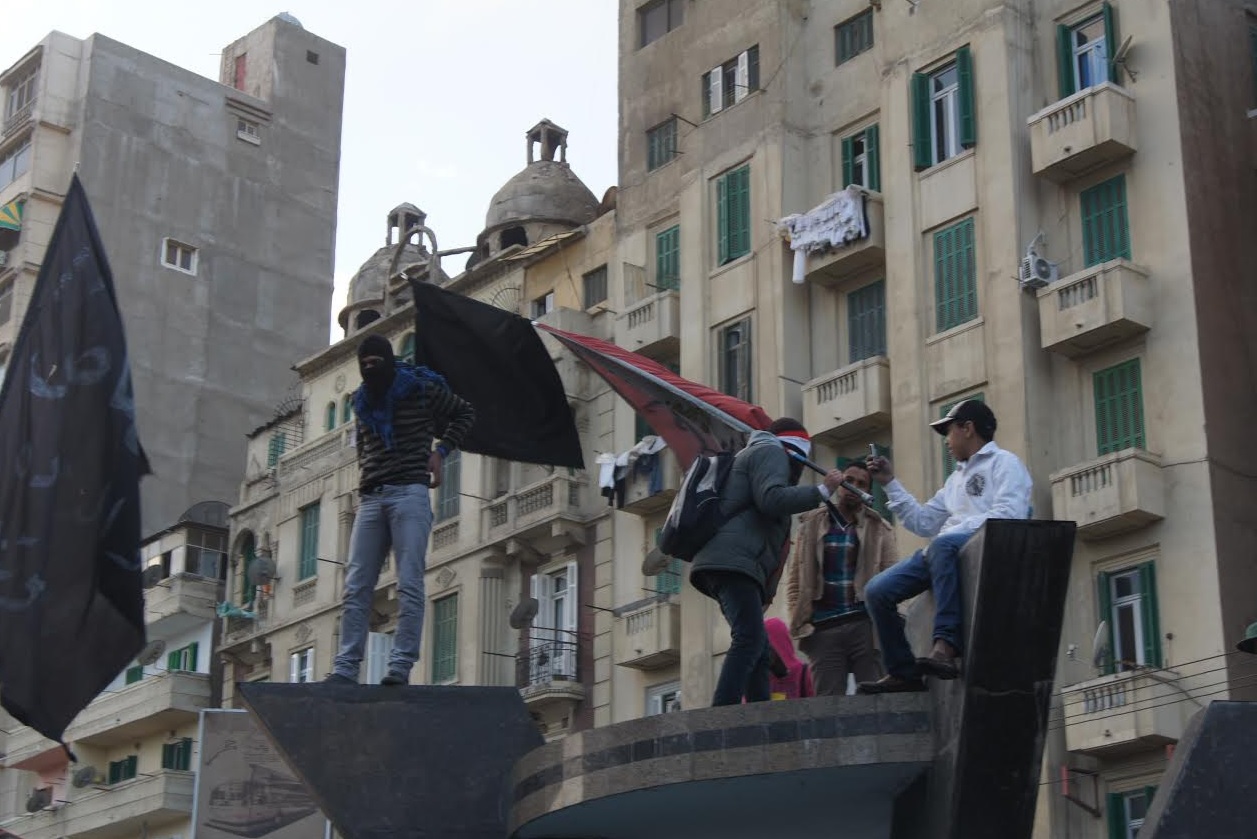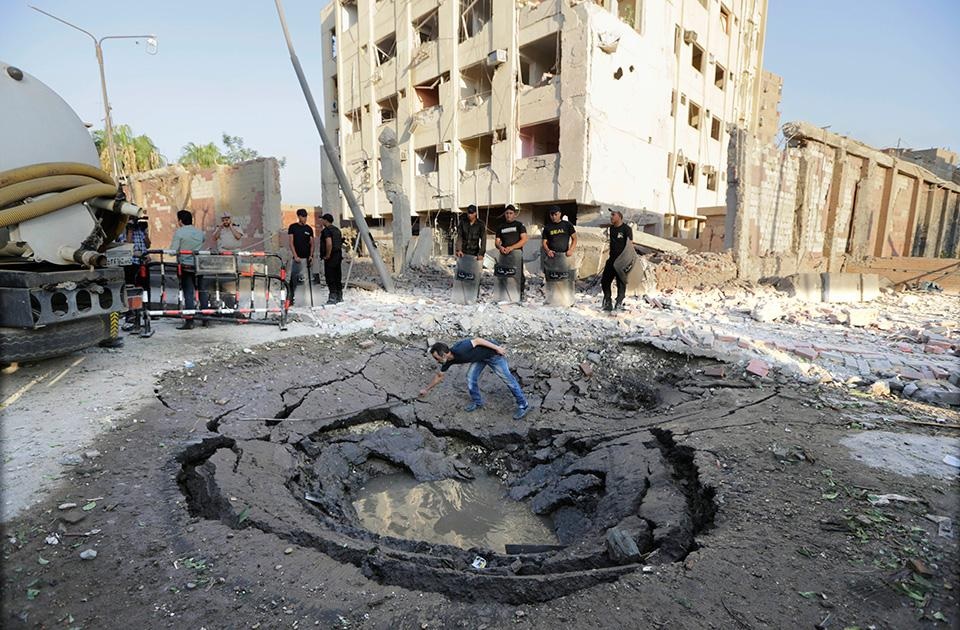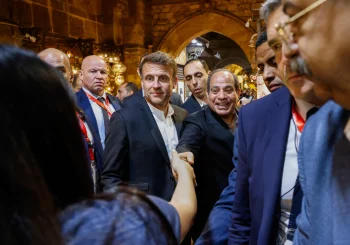The so much longed for dream of stability in Egypt seems to be unreachable. Waking up with the news of the car bomb explosion that targeted the National Security Building in Shubra El Kheima early this morning and injured at least 24 people, Egyptians carried out their daily routine with an apathetic attitude, almost submissive to the loaded summer of unrest.
Hours after the large explosion that shook Cairo early this morning, Egyptian Facebook users started sharing the page of a Black Bloc group that claimed responsibility for the attack. Activists of the group stated, “We claim the full and complete responsibility for the explosions that took place an hour ago. We also announce our official presence within the coming days in the Arab Republic of Egypt if political detainees, who are arrested with no criminal charges against them, are not released”
The group sent a message to the National Security Authorities stating, “The explosions are a reaction to what you do. The current situation in Egypt confirms that you do what you have always been doing since Mubarak. Free the detainees before the execution of the big event”.
The group also announced a second launch of their activities or “A Comeback” and posted a link to a new page, “Black Bloc Students” reporting its goals and activities.
However, the official Black Bloc Egypt denied any connection to the statements or the page. It described it as a fictitious group that aims at shedding doubt around the activists who founded the group back in 2013. The group officially accused the state security of trying to portray them as terrorists.
The first appearance of the Black Bloc date back to January 24, 2013, right before the second anniversary of the ousting of President Hosni Mubarak. The group consisted of militant revolutionaries and soccer fans who expressed their dissatisfaction with the rule of President Mohammed Morsi as well as with the practices of the Ministry on Interior. They were visible in the demonstrations that preceded Morsi’s ousting with their black outfits and masks. They also used the tactics of street fights, railway blockage and vandalism.

In their video clip entitled “The first statement of the Black Bloc”, the group asserted that they aimed to bring down Muslim Brotherhood rule.
Members of the group mentioned that they were inspired by footage of clips of Black Bloc activities in Greece. They carry black banners showing the letter ‘A’ in a circle, the international sign of anarchism.
Despite the conflicting statements between the two pages, the official page of Black Bloc Egypt declared that they are planning for a comeback because they are against the Islamists and the army. One of their posts asserted, “Let the Islamists and the army play each other. Afterwards, it will be our turn to confront the winner”.
The comeback of militant anarchism by youth activists could be a sign of growing political dissidence unrelated to Islamist opposition. The bombing came after President Abdel Fattah al-Sisi ratified an anti-terrorism law on August 16 that increased police and judicial powers in the fight against terrorism.
The ratification of the anti-terrorism law was criticized as an attack on freedoms and a restriction to human rights in Egypt. In a statement, Human Rights Watch stated that “the law increases authorities’ power to impose heavy sentences, including the death penalty, for crimes under a definition of terrorism that is so broadly worded it could encompass civil disobedience”.
Recent attacks in Egypt included the car bomb explosion in front of the Italian Consulate in downtown Cairo on July 11, the assassination of state prosecutor Hisham Barakat in a car bombing in June, and the large-scale Islamic State operations in the Sinai Peninsula.





Comments (12)
[…] http://egyptianstreets.com/2015/08/21/uncertainty-in-egypt-from-terrorism-to-youth-anarchism/ […]
[…] http://egyptianstreets.com/2015/08/21/uncertainty-in-egypt-from-terrorism-to-youth-anarchism/ […]